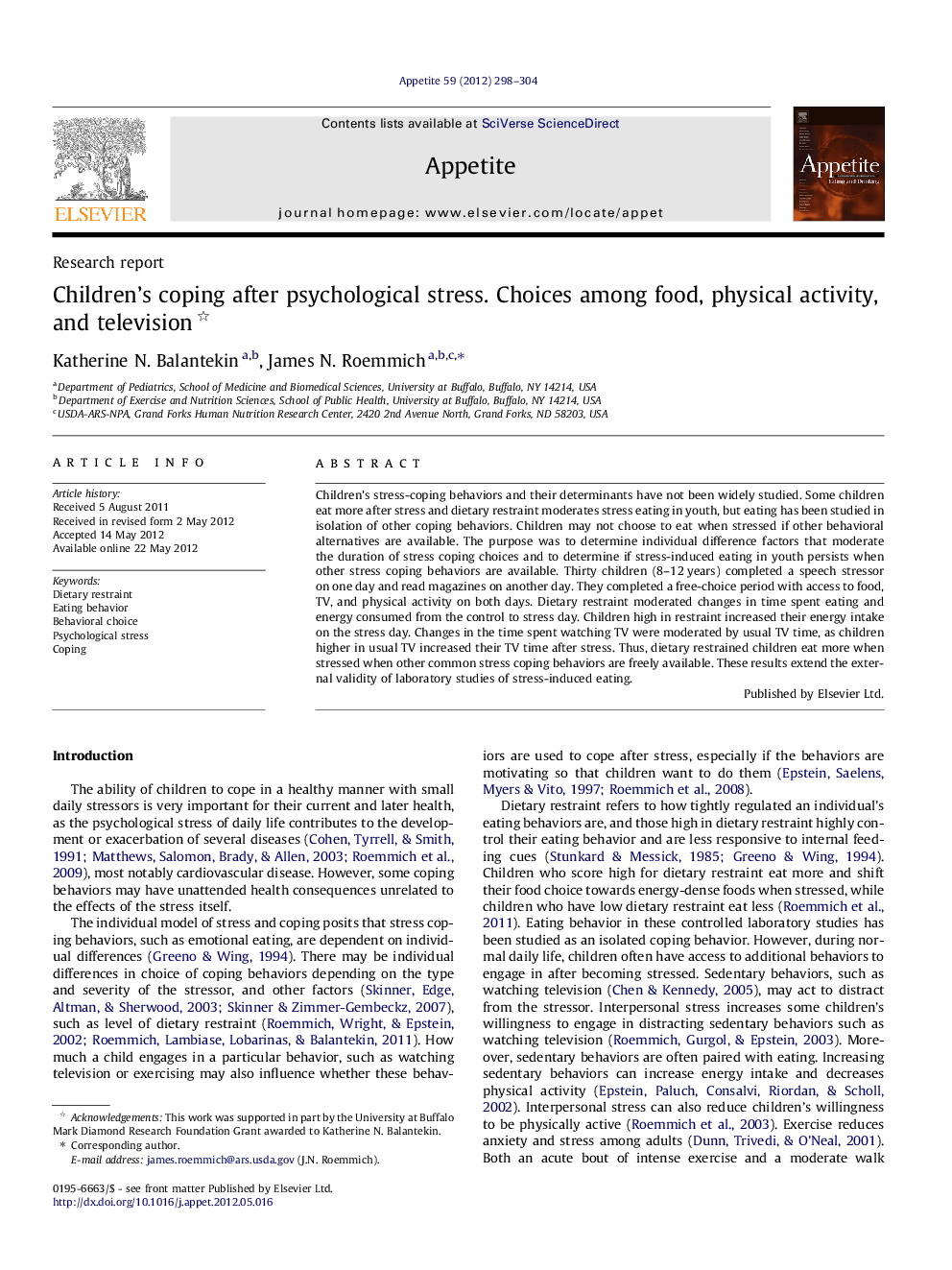| Article ID | Journal | Published Year | Pages | File Type |
|---|---|---|---|---|
| 939946 | Appetite | 2012 | 7 Pages |
Children’s stress-coping behaviors and their determinants have not been widely studied. Some children eat more after stress and dietary restraint moderates stress eating in youth, but eating has been studied in isolation of other coping behaviors. Children may not choose to eat when stressed if other behavioral alternatives are available. The purpose was to determine individual difference factors that moderate the duration of stress coping choices and to determine if stress-induced eating in youth persists when other stress coping behaviors are available. Thirty children (8–12 years) completed a speech stressor on one day and read magazines on another day. They completed a free-choice period with access to food, TV, and physical activity on both days. Dietary restraint moderated changes in time spent eating and energy consumed from the control to stress day. Children high in restraint increased their energy intake on the stress day. Changes in the time spent watching TV were moderated by usual TV time, as children higher in usual TV increased their TV time after stress. Thus, dietary restrained children eat more when stressed when other common stress coping behaviors are freely available. These results extend the external validity of laboratory studies of stress-induced eating.
• Children with greater dietary restraint consume greater energy after stress. • Children who watch greater amounts of TV use TV as a stress coping behavior. • Children with high restraint choose to stress eat when other choices are available.
